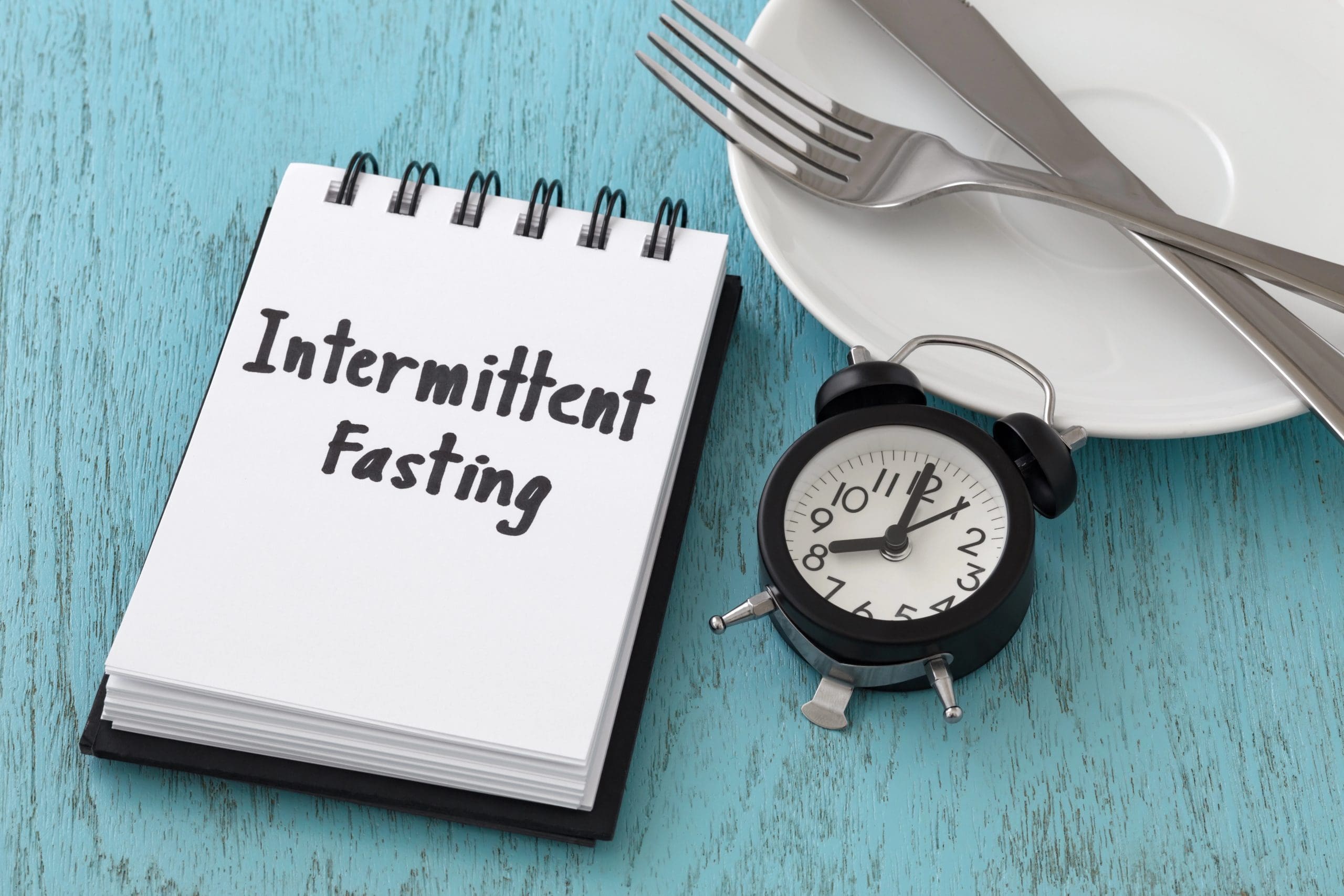Last Updated on 21/06/2024 by Jill Dumas
Intermittent Fasting for Perimenopausal Women:
A Comprehensive Guide
Intermittent fasting has gained significant popularity in recent years, touted as a potential strategy for weight loss, improved health, and enhanced energy levels. But can it be a beneficial tool for perimenopausal women facing unique hormonal challenges?
In this blog post, we’ll explore the science behind intermittent fasting, its potential benefits for perimenopausal women, and practical tips for incorporating it into your lifestyle. We’ll also discuss the potential drawbacks and who may not be suitable candidates for intermittent fasting.
Understanding Intermittent Fasting
Intermittent fasting involves cycling between periods of eating and fasting. It’s distinct from traditional dieting, which focuses on restricting specific foods or calories. There are various methods of intermittent fasting, including:
- Time-restricted feeding: Limiting eating to a specific window of time each day (e.g., 16/8 method).
- Alternate-day fasting: Fasting every other day.
- Whole-day fasting: Fasting for 24 hours once or twice a week.
Benefits of Intermittent Fasting for Perimenopausal Women
1. Weight Management
Intermittent fasting can help regulate hormones and support weight management, which is often a challenge during perimenopause.
2. Improved Energy Levels
By optimising insulin sensitivity and reducing inflammation, intermittent fasting can help boost energy levels and combat fatigue.
3. Enhanced Sleep Quality
Intermittent fasting can improve sleep quality by regulating hormones like cortisol and melatonin.
4. Hormonal Balance
By supporting hormonal balance, intermittent fasting can help alleviate perimenopausal symptoms like hot flashes, night sweats, and mood swings.
Potential Drawbacks of Intermittent Fasting
While intermittent fasting can offer benefits, it’s important to be aware of the potential drawbacks:
1. Hormonal Imbalances
In some cases, intermittent fasting can exacerbate hormonal imbalances, especially in women with existing hormonal issues.
2. Difficulty Adhering
It may be challenging to maintain a consistent intermittent fasting schedule, especially for those with busy lifestyles or underlying health conditions.
3. Nutrient Deficiencies
If not done correctly, intermittent fasting can lead to nutrient deficiencies, particularly in women with specific dietary needs or restrictions.
Who Should Not Fast
1. Women with Eating Disorders
Intermittent fasting can trigger or exacerbate eating disorders.
2. Individuals with Certain Medical Conditions
People with diabetes, hypoglycaemia, or certain gastrointestinal disorders may not be suitable candidates for intermittent fasting.
3. Pregnant or Breastfeeding Women
Intermittent fasting is generally not recommended during pregnancy or breastfeeding.
4. Individuals Taking Medications
Some medications may interact with intermittent fasting, so it’s important to consult with a healthcare professional before starting.
Practical Tips for Incorporating Intermittent Fasting
- Start Gradually: Begin with a less restrictive method, such as the 16/8 method, and gradually increase the fasting window as your body adapts.
- Listen to Your Body: Pay attention to your hunger and fullness cues. Avoid fasting if you feel unwell or have underlying health conditions.
- Prioritise Nutrient-Dense Foods: During your eating window, focus on consuming nutrient-dense foods to ensure you’re getting the essential vitamins and minerals your body needs.
- Stay Hydrated: Drink plenty of water throughout the day, especially during fasting periods.
- Consider Supplements: If you’re concerned about nutrient deficiencies, consult with a healthcare professional to discuss potential supplementation.
The DUTCH Test: A Deeper Dive
The DUTCH (Dried Urine Test for Hormones) test can provide valuable insights into your unique hormonal profile, including oestrogen, progesterone, cortisol, and other relevant hormones. This information can help you tailor your intermittent fasting approach to your specific needs.
Intermittent Fasting for Perimenopausal Women
Intermittent fasting can be a valuable tool for perimenopausal women seeking to improve their health and well-being. However, it’s essential to weigh the potential benefits and drawbacks and consult with a healthcare professional before starting. By understanding your individual needs and following a sustainable approach, you can maximize the benefits of intermittent fasting while minimizing the risks.
Remember to consult with a healthcare professional before starting any new diet or exercise regimen, especially if you have underlying health conditions.
Podcast Alert: Hormone Health, Intermittent Fasting & What to Eat in Your Window
For more in-depth information and practical tips, listen to our podcast with Angela & Nicola from Cinch Fast 30:
- Part 1: [Part 1 on Spotify]
- Part 2: [Part 2 on Spotify]
If you like this post you may also be interested in the following articles:
UNLEASHING THE POWER OF DUTCH COMPREHENSIVE HORMONE TESTING: A MUST FOR WOMEN
FEELING FATIGUED? REVIVE YOUR ENERGY WITH STRATEGIES TO INCREASE CORTISOL
HOW TO INCREASE PROGESTERONE NATURALLY WITH THE RIGHT DIET, LIFESTYLE AND SUPPLEMENTS



